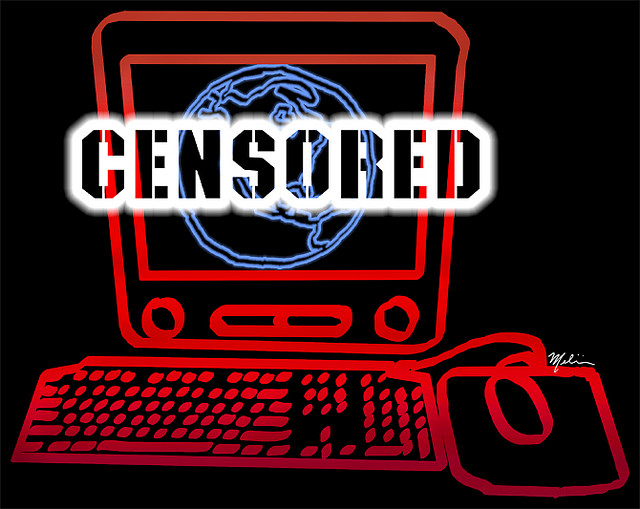It looks like you're using an Ad Blocker.
Please white-list or disable AboveTopSecret.com in your ad-blocking tool.
Thank you.
Some features of ATS will be disabled while you continue to use an ad-blocker.
11
share:

DC Net Neutrality ruling
[T]he Commission has established that section 706 of the Telecommunications Act of 1996 vests it with affirmative authority to enact measures encouraging the deployment of broadband infrastructure. The Commission, we further hold, has reasonably interpreted section 706 to empower it to promulgate rules governing broadband providers’ treatment of Internet traffic, and its justification for the specific rules at issue here—that they will preserve and facilitate the “virtuous circle" of innovation that has driven the explosive growth of the Internet—is reasonable and supported by substantial evidence. That said, even though the Commission has general authority to regulate in this arena, it may not impose requirements that contravene express statutory mandates. Given that the Commission has chosen to classify broadband providers in a manner that exempts them from treatment as common carriers, the Communications Act expressly prohibits the Commission from nonetheless regulating them as such. Because the Commission has failed to establish that the anti-discrimination and anti-blocking rules do not impose per se common carrier obligations, we vacate those portions of the Open Internet Order. Source
A Net Neutrality Timeline: How We Got Here
The original FCC order said that wireline ISPs ”shall not block lawful content, applications, services or non-harmful devices, subject to reasonable network management” while also mandating that ISPs “shall not unreasonably discriminate in transmitting lawful traffic over a consumer’s broadband Internet access service.”
In its ruling against the FCC’s rules, the court said that such restrictions are not needed in part because consumers have a choice in which ISP they use. Source
Welcome to America, where lobbying with money always wins. The courts are arguing there's options for the consumers to jump to other providers if they feel their service has degraded. They do admit some people might have issues finding providers in some regions. They cite Google Fiber has an example of "overflowing with competitive options."
There is a bit of a silver lining...
The ruling did, however, preserve the FCC’s power to require Verizon and other broadband obligations to disclose their activities — in other words to reveal how they are managing traffic: “Verizon does argue that the disclosure rules are not severable, insisting that if the anti-discrimination and anti-blocking rules fall so too must the disclosure requirements. We disagree [...] we are satisfied that the Commission would have adopted the disclosure rules absent the rules we now vacate, which, we agree, operate independently.”.....
“The court clearly left the FCC authority to do something,” said Harold Feld of Public Knowledge, a net neutrality advocate, by email, adding that Congress could also write new laws to further empower the FCC. In the meantime, it is also likely the case could go to the Supreme Court. source
Consumer advocacy group Public Knowledge offered similar thoughts, while urging the FCC to come up with new rules that meet legal muster. "[T]he Court did uphold broad Commission authority to regulate broadband," Public Knowledge Senior VP Harold Feld said. "To exercise that authority, the FCC must craft open Internet protection that are not full fledged common carrier rules. Alternatively, if the FCC needs broader authority it can classify broadband as a title 2 common carrier service. Both of these are viable options. In fact, Public Knowledge has long held that both broadband is a telecommunications service, and that the modest protections offered by the Open Internet rules fall well short of full common carrier regulations." source
A member at HackerNews, Declan McCullagh offers some decent insight.
Folks, today's ruling should come as no surprise. Congress never gave the FCC the authority to impose Net neutrality regulations on the Internet. That means the FCC's regulations were illegal. The same court already slapped down the FCC once, in 2010, remember: Court: FCC has no power to regulate Net neutrality
reply to post by ATSmediaPRO
Consumers do not have more options in regard to carriers. Most carriers have regional monopolies.
Either way, thanks for posting!
Consumers do not have more options in regard to carriers. Most carriers have regional monopolies.
Either way, thanks for posting!
new topics
-
Federal law trumps state and local law every time
Social Issues and Civil Unrest: 6 hours ago
11
